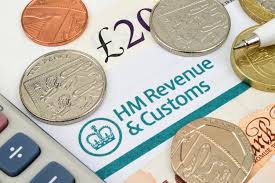This year 2017 see’s major changes to the Flat Rate VAT Scheme (FRS), which is a simplified accounting scheme for small businesses. Businesses using the FRS will be expected to ensure that, for each accounting period, they use the appropriate flat rate percentage. At Premier Accountants in Kirkintilloch & North Glasgow, we have provided below a low down on the changes made.
Background on The Flat Rate VAT Scheme
Flat Rate Scheme is a simplified method for eligible businesses to work out their VAT liability by applying a fixed percentage, based on the trade or profession to the VAT inclusive turnover. This scheme was designed to reduce the cost of complying with VAT obligations by simplifying the way small business calculate their VAT. This is achieved by applying a fixed percentage depending on the trade or profession. Under this scheme any VAT reclaims are restricted (except on capital equipment greater than £2000).
Previously, limited company contractors had a choice of collecting 20% VAT from the customers and paying only 14.5% to HMRC which resulted in a gain of 5.5%.
What Changes Were Made to The Flat Rate VAT Scheme in April 2017?
From April 2017, businesses qualifying as limited cost traders will have to pay 16.5% which means the gain will only be 3.5%.
Trader spending less than the following will qualify as limited cost trader:
- £250 / quarter or
- 2% of the VAT inclusive turnover.
whichever higher
Following expenses do not qualify:
- service which is not goods
- expenses on travel and accommodation
- means for employees or yourself
- fuel for vehicle
- rent, internet, phone bills and accountancy fees
- purchase of capital items such equipments.
Who Will Be Affected by The Changes in The Flat Rate VAT Scheme in April 2017?
In crux, the labour intensive business which spends less on goods such as IT contractors will be affected.
What to do:
Business in the first year of trading will still enjoy 1% discount which means their gain will be 4.5% which is still significant.
Business not in the first year of trade must review their spending pattern and identify if they qualify as limited cost trader.
If they qualify as one then we suggest carrying a time benefit analysis to see if it still worth being on flat rate scheme or should the business consider de-registration or change of the scheme.
How Premier Accountants Can Help:
We are here to help you with the way forward. Please contact us on 01417750070 or enquiries@patax.co.uk.







